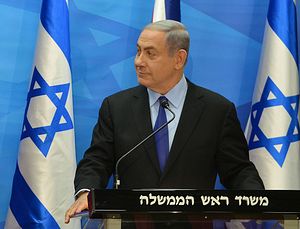Trans-Pacific View author Mercy Kuo regularly engages subject-matter experts, policy practitioners, and strategic thinkers across the globe for their diverse insights into U.S. Asia policy. This conversation with Dr. Alon Levkowitz – research associate at the Begin-Sadat Center for Strategic Studies in Israel and the coordinator of Asian Studies at Bar-Ilan University – is the 99th in “The Trans-Pacific View Insight Series.
Briefly describe Israel’s decision to pivot toward Asia.
For many years, Israel focused mainly on the U.S. and European Union markets. Asia was not perceived an important market due to the lack of economic potential for the Israeli market in some of the Asian nations, the lack of Asian political leverage in the international arena, which Israel needed, and the lack of diplomatic relations with some of the Asian nations.
A few factors led to the Israeli shift and the decision to look toward Asia: first and foremost, the economic factor. The development of both the Israeli and the Asian economies increased the potential of the Asian market for Israeli technologies (civilian and military); Israel was looking for foreign markets for its products and Asia was looking for economic and technological opportunities. The second factor is the partial decline of trade with the EU and growing EU political and diplomatic criticism of Israel’s policies. This led the Israeli government to perceive Asia as a potential market, not yet providing diplomatic leverage like the U.S. but as a potential future balancer. Third was the end of the Arab Boycott. From the 1970s, governments and companies in Asia were concerned that trading with Israel would have a negative effect on their trade with the Arab and the Muslim world. With the dissolution of this concern, the last barrier to trade broke down, and trade between Asia and Israel began to flourish. The fourth and final factor was the Israeli government’s decision to follow the market. Israeli industries and startups began to see the huge potential of Asian financial markets and the manufacturing companies and to cooperate with Asian companies in China, Korea, and Japan. The Israeli government likewise apprehended the growing potential and immediately reinforced its foreign office representatives and economic attachés in Asian embassies.
Explain the role of free trade agreements (FTA) in Israel’s Asia strategy.
Israel sees FTAs as an important pillar in its foreign economic and political policy. An FTA, especially if Israel is the only state in the Middle East to sign one, sends a clear message of Israel’s economic achievements. An FTA with Asia allows Israel to upgrade its trade with China, South Korea, India, and Vietnam. It also allows Israel, depending on the FTA’s legal points, to expand its trade to other countries in Asia with which it does not have diplomatic relations, particularly the Muslim countries in Southeast Asia.
The FTA is, of course, only one strata of Israeli policy toward Asia. This economic strata also includes joining the AIIB [Asian Infrastructure Investment Bank], despite the lack of support from Washington and Tokyo. Israel sees the AIIB as a mechanism for increasing its involvement in Asia and promoting economic projects in Asia and the Middle East. Israel hopes that the FTA will not just increase trade between Israel and Asia but will also spill over to other stratas such as political and diplomatic support of Israel in international organizations.
Israel is in the advanced stage of signing FTAs with South Korea and Vietnam. Why are these two countries priorities for Israel?
Israel didn’t originally prioritize South Korea and Vietnam as the first states with which it would sign FTAs; in fact, the Israeli foreign office sought FTAs with more than a few Asian nations. In the case of South Korea, the process, including the pre-negotiations and the negotiations, took almost 10 years until a final decision to pursue an FTA was approved. Israel tried to promote FTAs with other Asian countries, for example, Japan, but failed to convince the Japanese government. Israel hopes that the FTAs with China and South Korea and later with Vietnam and India will serve to encourage other Asian countries to begin FTA negotiations with Israel.
How does Israel’s Asia strategy compare to that of other Middle East countries?
Israel is aware that its volume of trade could never compete with the main players in the Middle East. The volume of trade between Israel and South Korea and China is less than 10 percent of GCC [Gulf Cooperation Council] trade with South Korea and China. While unable to offer the billions of dollars of oil, gas, or infrastructure projects that other Middle Eastern states can offer, Israel is using its relative technological advantage to maximize its trade with Asia. The Middle East states are also now trying to promote FTAs with Asia. For the time being, Israel has been more successful in this area.
What is the impact of Israel’s Asia strategy on U.S.-Israel relations?
Israel learnt over the years that Washington can draw the lines when Jerusalem breaches U.S. interests in Asia, as, for example, with the Phalcon aircraft deal with China and with Israel’s attempt to reach a deal with North Korea on its missile sales to the Middle East. In both cases, Washington drew the line and Israel had to withdraw. Since then, Israel has tried not to interfere with Washington’s interests in Asia on military issues, but does not feel constrained by Washington in the area of economic and diplomatic relations. The AIIB is a case in point: even though Washington preferred Jerusalem not to join, Israel made its own decision based on its interests in Asia and the Middle East.

































